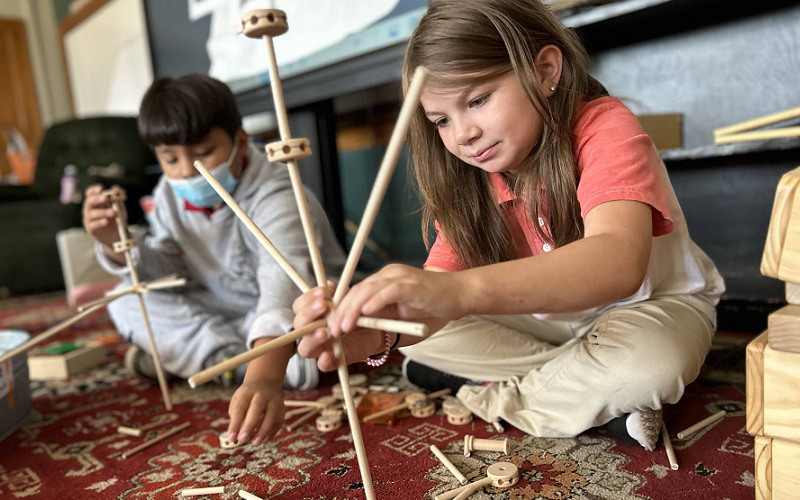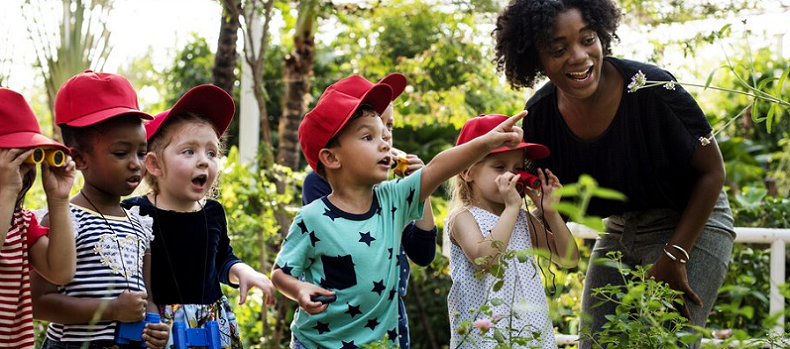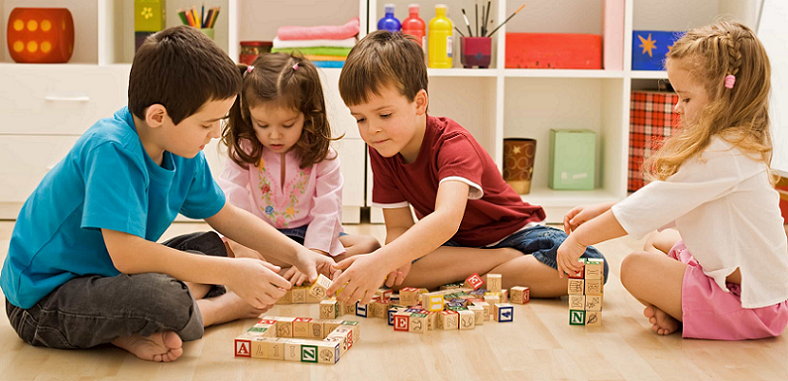
Early childhood education lays the foundation for a child’s academic, social, and emotional development. One approach that has gained popularity in recent years is play-based learning. Play-based learning is an effective way to teach young children important skills while keeping the learning experience fun and engaging. Here we explore the power of play-based learning in early childhood education and why it’s important for children’s growth and development.
What Is Play-Based Learning?
Play-based learning is an approach to education that uses play as a tool for teaching young children important skills and concepts. It involves creating a learning environment that is interactive, engaging, and meaningful for children. Play-based learning is based on the belief that children learn best through play, as it allows them to explore, experiment, and discover the world around them in a fun and safe way.
Play-based learning is not a new concept. In fact, it has been around for centuries, as children have always learned through play. However, in recent years, play-based learning has gained recognition as a valuable approach to early childhood education, supported by research that demonstrates its effectiveness.
In play-based learning, the emphasis is on the process of learning, rather than the end result. Children are encouraged to explore and experiment, to ask questions, to make mistakes, and to learn from their experiences. Play-based learning is child-centered, meaning that the focus is on the child’s interests, needs, and abilities.

There are many different types of play-based learning activities that can be used in early childhood education.
- Free play: this is unstructured play where children are free to play with whatever they choose, without any guidance or direction from adults.
- Structured play: this is play that is guided or directed by adults, with a specific learning goal in mind.
- Pretend play: this is play that involves imagination and role-playing, allowing children to explore different roles and situations.
- Sensory play: this is play that involves exploration and experimentation with different textures, sounds, and materials.
- Outdoor play: this is play that takes place outside, allowing children to explore nature and the environment.
- Games: this is play that involves rules and structure, encouraging children to develop social and cognitive skills.
The Benefits of Play-Based Learning
Play-based learning is a valuable approach to early childhood education that provides a positive and engaging learning environment for young children. There are many benefits of play-based learning, including the development of essential skills such as social, emotional, and cognitive skills, as well as promoting physical development.
Development of Social Skills
Play-based learning helps young children develop important social skills such as communication, cooperation, and empathy. Through play, children learn how to share, take turns, negotiate, and resolve conflicts. They also learn how to work collaboratively with others, which is an essential skill for success in school and life.
Development of Emotional Skills
Play-based learning helps children develop emotional intelligence, which is the ability to recognize and manage their own emotions, as well as the emotions of others. Through play, children learn how to express their emotions in a healthy and constructive way, and they also learn how to empathize with others. This helps them build strong relationships with peers and adults and promotes positive mental health.

Development of Cognitive Skills
Play-based learning helps children develop cognitive skills such as problem-solving, critical thinking, and creativity. Through play, children are encouraged to explore, experiment, and make decisions, which helps them develop their problem-solving skills.
They also learn how to think critically, analyze information, and make connections, which helps them develop their reasoning skills. Play-based learning also encourages creativity, which is an essential skill for success in many areas of life.
Promotion of Physical Development
Play-based learning promotes physical development in young children. Through play, children develop their gross motor skills (large muscle movements) and fine motor skills (small muscle movements). They also learn how to coordinate their movements, which is essential for success in sports and other physical activities.
Long-Term Benefits
Play-based learning has long-term benefits for children’s academic and personal success. Children who participate in play-based learning tend to perform better in school, have higher self-esteem, and are more likely to continue learning throughout their lives. They also develop a love of learning, which is an essential component of lifelong learning.
Play-Based Learning in Practice
Play-based learning is an approach to education that uses play as a tool for teaching young children important skills and concepts. It is a child-centered approach that emphasizes the process of learning rather than the end result.
Creating a Play-Based Learning Environment
To create a play-based learning environment, teachers and parents should provide a variety of materials and activities that encourage exploration, experimentation, and discovery. This includes toys, books, art materials, blocks, puzzles, and outdoor equipment. The environment should be safe, stimulating, and age-appropriate.
Incorporating Play-Based Learning into the Curriculum
Play-based learning can be incorporated into the curriculum by using play-based activities to teach specific skills and concepts. For example, a teacher might use blocks to teach math concepts such as counting, sorting, and patterns. They might also use pretend play to teach social skills such as communication, cooperation, and empathy.

The Role of Teachers in Facilitating Play-Based Learning
Teachers play a crucial role in facilitating play-based learning. They should create a positive and engaging learning environment, provide guidance and support, and observe and document children’s learning. Teachers should also be flexible and responsive to children’s interests, needs, and abilities, adapting activities and materials as needed.
The Role of Parents in Facilitating Play-Based Learning
Parents can also play a role in facilitating play-based learning. They can provide a variety of materials and activities at home, encourage their children to explore and experiment, and participate in play-based activities with their children. Parents should also be supportive of their children’s learning and provide positive feedback and encouragement.
Examples of Play-Based Learning Activities
There are many different types of play-based learning activities that can be used in early childhood education. These include free play, structured play, pretend play, sensory play, outdoor play, and games. Examples of play-based learning activities include building with blocks, making art, playing dress-up, exploring nature, and playing board games.
The Challenges of Play-Based Learning
While play-based learning is a valuable approach to early childhood education, there are also some challenges associated with it. In this section, we’ll explore some common challenges that teachers and parents face when implementing play-based learning in early childhood education, as well as strategies for overcoming these challenges.
Assessment and Documentation
One of the challenges of play-based learning is assessment and documentation. It can be difficult to assess children’s learning through play, as it is not always clear what they are learning and how they are developing. Documentation can be time-consuming and require specific skills.
To overcome this challenge, teachers and parents can use a variety of assessment tools, including observations, anecdotal records, and portfolios. They can also work collaboratively with children to document their learning, using tools such as cameras and journals.
Planning and Preparation
Another challenge of play-based learning is planning and preparation. It can be challenging to create a play-based learning environment that is stimulating, engaging, and age-appropriate. It can be difficult to plan activities and materials that meet the needs and interests of all children.
To overcome this challenge, teachers and parents can work collaboratively to plan and prepare play-based learning activities. They can also observe and document children’s interests and needs, and adapt activities and materials accordingly.
Professional Development and Support
Play-based learning requires specific skills and knowledge, and it can be challenging for teachers and parents to develop these skills on their own. There may be limited professional development and support available for play-based learning.
To overcome this challenge, teachers and parents can seek out professional development opportunities and resources, such as conferences, workshops, and online courses. They can also work collaboratively with other educators and parents to share ideas and support each other.
Parental Support
Parental support can be a challenge when implementing play-based learning. Some parents may not be familiar with the concept of play-based learning or may have different expectations for their children’s education.
To overcome this challenge, teachers and parents can communicate effectively with parents, providing information about the benefits of play-based learning and involving them in the learning process. They can also provide resources and support for parents, such as workshops and information sessions.
